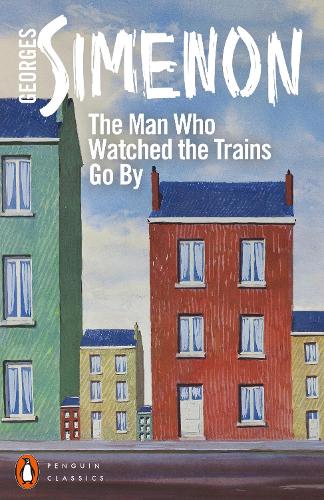
The Man Who Watched the Trains Go By
(Paperback)
Publishing Details
The Man Who Watched the Trains Go By
By (Author) Georges Simenon
Translated by Sin Reynolds
Penguin Books Ltd
Penguin Classics
1st December 2016
3rd November 2016
United Kingdom
Classifications
General
Fiction
Fiction in translation
843.912
Physical Properties
Paperback
256
Width 130mm, Height 198mm, Spine 15mm
193g
Description
A new translation of Simenon's haunting masterpiece of a man on the run from guilt, desperation and mundanity 'If he had searched his conscience, in all seriousness, for anything predisposing him to an eventful future, he would probably not have thought of a certain furtive, almost shameful emotion that disturbed him whenever he saw a train go by, a night train especially, its blinds drawn down on the mystery of its passengers.' Something snaps in the mind of Kees Popinga when the Dutch shipping firm he works for collapses under dubious circumstances just before Christmas, taking all his money with it. From the shell of this model citizen emerges a calculating paranoiac, capable of random acts of violence - even murder. The fugitive Popinga makes his way to Paris, playing a bizarre game of cat and mouse with the police - determined to force an uncaring world to take notice of him.
Reviews
Fierce, bleak and compellingly written . . . with pitiless landscapes of hopeless longing, random cruelty and galloping fate warmed only by the twilit lyricism of doomed desire. These are novels of eye-opening, spine-tingling control and intensity. -- Boyd Tonkin * The Independent *
One of the greatest writers of the twentieth century . . . Simenon was unequaled at making us look inside, though the ability was masked by his brilliance at absorbing us obsessively in his stories * Guardian *
Compelling . . . Simenon shows how close the deranged mind is to the ordinary mind' * Financial Times *
Author Bio
Georges Simenon (Author) Georges Simenon was born in Li ge, Belgium, in 1903. He is best known in Britain as the author of the Maigret novels and his prolific output of over 400 novels and short stories have made him a household name in continental Europe. He died in 1989 in Lausanne, Switzerland, where he had lived for the latter part of his life.
